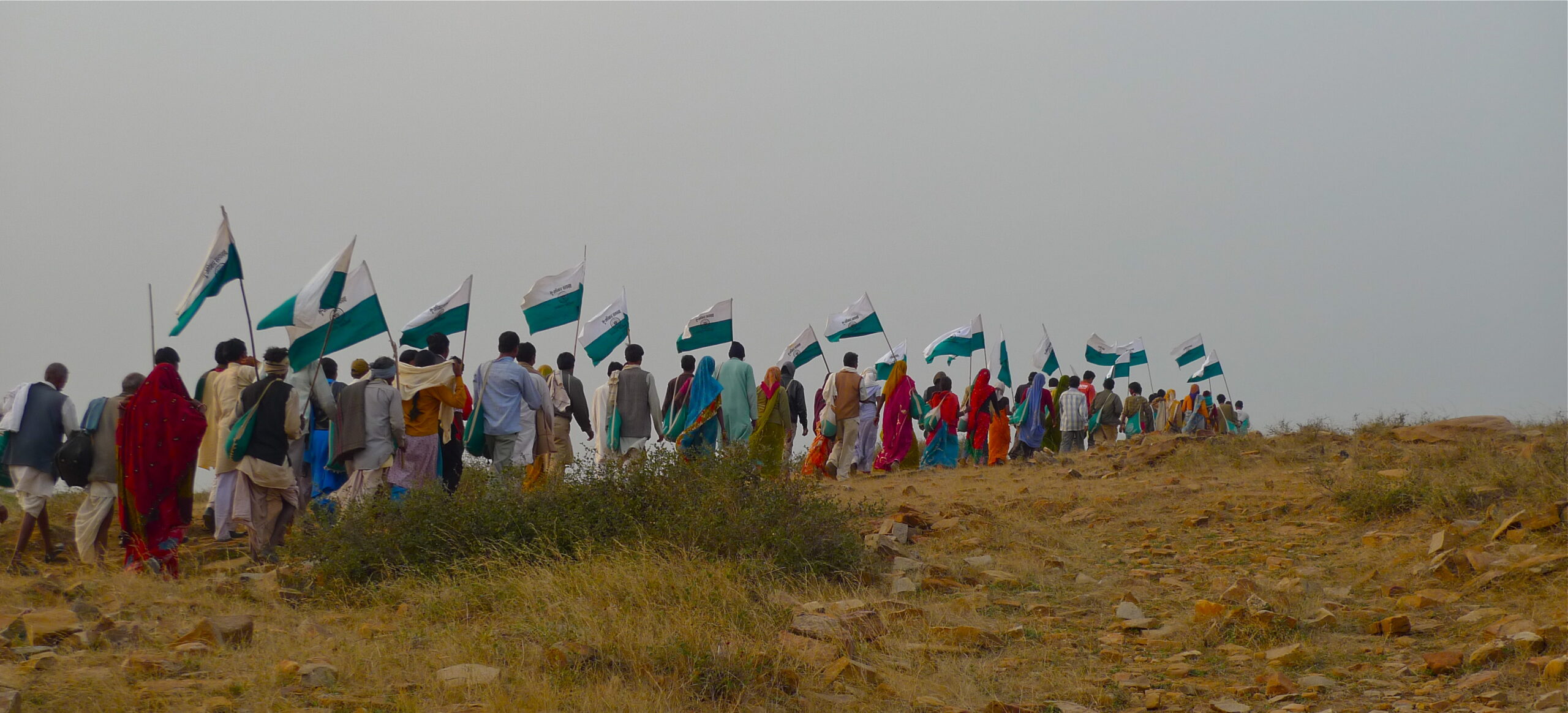Socialists and villagers wage tireless battle
Venkatesh Harale, New Socialist Alternative (CWI in India)
The plundering of natural resources is a major form of capitalist exploitation. Land, in particular, acquires an important place in such exploitation mainly because of its speculative value.
India, especially in the past 25 years of neoliberal onslaught, has witnessed the massive plunder of land under the guise of major infrastructure projects. Nonetheless, such land-grabbing has provoked mass resistance movements.
New Socialist Alternative in Pune, is very actively involved in one such struggle – that against the proposed Pune International Airport.
In October 2016, the government announced the use of the site of Purandar (eastern Pune) to build an international airport. This announcement came as a shock to the residents of Purandar and soon they started to protest against it.
New Socialist Alternative members from Pune have visited the affected villages and conducted multiple meetings with the inhabitants. One of the first questions we had to deal with was assessing the need for such a project.
Plunder
In the case of Purandar airport, the government initially proposed that around 1,200 hectares of land would be required. Then it was raised to 2,000 and now the requirement has become 3,000 hectares. Yet the larger Mumbai airport has an area of 750 hectares.
It is crystal clear that it is not only an airport that is the aim here. The excess land is going to be used for capitalist plunder. All this is specifically for the elite who can bear the cost of flights regularly. The original residents of this place – the farmers and their descendants – are going to have no place here.
The villagers at Purandar started protests straight after the announcement about the airport. A few of the villages passed resolutions against the project. However, as observed in many such struggles, as things proceed further, the state uses various tactics, from cajoling to repression to scupper such struggles.
One of the most powerful tactics they use is throwing big buck figures in compensation packages for land. These things could easily wear down such struggles. Hence, sustaining them requires providing leadership with correct strategy and tactics.
New Socialist Alternative stepped into the struggle. We explained the predatory nature of the capitalist interests behind such projects to the villagers and advised them to form a committee of affected villagers to coordinate the struggle.
We has played a leading role in forming a committee in Pune city that has involved different left organisations.
New Socialist Alternative members have arranged meetings from village to village to discuss the impact with everyone affected. Sometimes, the meetings have lasted even until midnight. We, along with both the committees, gave a call in the affected villages to unite in a rally at the collector’s office to show our refusal to give up land.
This solidarity has given confidence to the villagers to go forward in struggle. In the early stages of our involvement, the administration could successfully push for a survey by throwing in some false promises.
Villagers realised this later and then together we stopped the survey at certain sites. Emboldened, this was replicated in other villages.
Repression
In the aftermath of such protests against state authority, police repression is being stepped up. On a couple of occasions the police threatened New Socialist Alternative members, telling them not to intervene and that we should not have anything to do with this.
On 26 December, Sagar from New Socialist Alternative, Pune, was threatened by the police not to intervene or else he would be booked on charges of instigating public unrest.
The administration is also spreading rumours about organisations like ours involved in the protests as “extremist” organisations.
But, since we are working closely with the villagers, such tactics have been counterproductive.
Together we are taking the struggle forward.
The state-corporate nexus
Infrastructure projects motivated by capitalist interests are implemented under a ‘public private partnership’ model, which translates into a state-corporate nexus.
The task of acquiring land, causing the displacement of its owners, is carried out by the government in the name of ‘public interest’, and the land acquired is then handed over to capitalists for the project to be carried out.
Often, such a transfer of land ownership to a corporation is part of a much larger real estate game. A fraction of land acquired for industrial zones or infrastructure projects is actually used for the stated purposes while the rest is used either for commercial or speculative transactions.
Such speculative transactions see developers selling land at prices a hundred times more than the amount paid to the original owners.
In the case of the Yamuna Expressway, in northern India, these lands have been used to build expensive townships, elite shopping malls and five-star hotels, multiplexes for entertainment and also cricket and hockey stadiums. Moreover, this land, acquired under ‘public interest’, was used to build a Formula One racing track!
How do investors raise the capital for such projects? Do they do it by digging into their own pockets? Such investments often ride on a debt bubble.
In India, such investments are done by borrowing mainly from public sector banks. When these projects turn out to be white elephants, the loans are never paid off.
Governments, servile to the capitalists, then write off these loans, transfer them into ‘non-performing assets’ or restructure them. They are rarely paid back.
Who pays for this? The common people! This is done through various indirect taxes.
A recent example is of the central right-wing BJP government waiving around $700 million loans for the corporation that includes liquor baron Vijay Mallya who, facing fraud and money laundering charges, fled the country some months ago.









